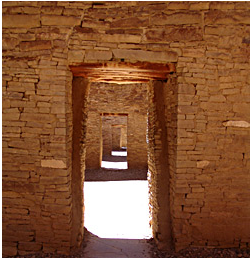Publication Date
Summer 5-1-2012
Abstract
In recent years, small-scale agriculture and acequia (traditional ditch irrigation) practices have become a significant locus for the goals and agendas of multiple stakeholders in New Mexico, attracting political, scholarly, and popular interest from a wide variety of groups and individuals. For this reason, local acequieros (acequia irrigators) and farmers are constantly engaged in processes of boundary-making, identity formation, and negotiation over the limits, claims, and goals of their involvement in agricultural activism, as well as the involvement of others. This thesis addresses the content, meaning, and implications of the strategic identity formation and boundary-making practices of one organization at the heart of agricultural and irrigation activism in New Mexico, the New Mexico Acequia Association (NMAA), specifically through the lens of a community-based, collaborative research project called the Mayordomo Project. Through the close analysis of interviews, events, and conversations that have taken place as part of the NMAAs Mayordomo Project, I argue that NMAA discourses center around the formation of a potentially resistant identity which attempts to reformulate or transcend the conventional categories of ethnic and/or socioeconomic identity that have been inscribed by the region's history of ethnic conflict, as well as by past ethnography, while also contrasting with commonplace tropes of 'tri-cultural harmony' in New Mexico. I argue that what I call 'agrarian' identity, as constructed by the discourses of the NMAA, can be usefully analyzed through some of the same theoretical frameworks that have been used to describe indigeneity as both a resource and a limitation, as well as a particular emergent structure of feeling characterized by connection to, and engagement with, place and past. Ultimately, I contend that agrarian identity does not simply represent a kind of multiculturalism through the elision of conflict nor an effort to create a na\xefve and primordial connection to the past, but rather an attempt to transcend historic boundaries of ethnicity and practice through an emphasis on shared experience and an ethic of engagement.'
Document Type
Thesis
Language
English
Level of Degree
Masters
Department Name
Anthropology
First Committee Member (Chair)
Trujillo, Michael
Second Committee Member
Dinwoodie, David
Recommended Citation
Trott, Elise. "Planting Seeds is a Metaphor: Being Agrarian, Agricultural Activism, and Emergent Identity in New Mexico." (2012). https://digitalrepository.unm.edu/anth_etds/70



